
by Rachel Toalson | Wing Chair Musings
I recently had the privilege and pleasure of returning to the library I visited every Saturday as a kid. My mom is the library director there, and she asked me to do an author event. I readily agreed. With a crowd of old school friends, old teachers, and strangers, I talked about my journey from small-town girl to published author.
I came from humble beginnings, but I always knew I wanted to be an author. I soon learned that people like me—the poor—weren’t supposed to be authors; we were supposed to be workers, not creators. We were supposed to try harder to pull ourselves from the cycle of poverty, and creative work wasn’t real work. We were supposed to accept our lot in life and go about our business if not happily, then at least diligently.
Though she didn’t divorce my father until I was eleven, my mother spent most of my childhood as a single mom, while my dad was away working a job that didn’t provide her any money. Money was tight. She was creative and stretched it as far as she could. She worked two jobs to do it. But she always seemed able to provide me with an endless supply of stapled-together white paper and sharpened pencils. I ran through these blank “books” rapidly, writing and illustrating stories very similar to Little House on the Prairie, (though the drawings were nowhere near the quality of Garth Williams’s illustrations).
In middle school my English and Reading teachers recognized something me. They told me I was good at writing, and that made me think maybe I could do it. In high school my teachers affirmed that gift, inviting me to enter writing competitions, publish in small magazines, and develop my skill in big and small ways. I got a full scholarship to college on the strength of my entrance essay, which my high school counselor encouraged me to write.
I speak out often on behalf of the poor—about their need for support, the complicated circumstances that keep them stranded in lack, the way we are all different even while we share the same seams of a story. And any time I speak about it, old high school friends come out to say, “Yes, but you made it out. Why can’t they?”
I made it out; why can’t they?
It’s a difficult question to answer, and, of course, there are never simple answers to any questions. I made it out because I hailed from different circumstances—I had a mother who believed in me and told me every chance she got. I made it out because I had the right personality; I’ve always been tenacious, even while carrying a good measure of self-doubt, and that helped me climb from the pit (not without a few falls, but I’ve never been one to stay down for long). I made it out because all along my way I had someone calling me higher—people who loved me and wanted the best for me and believed I could actually accomplish it.
My making it out was a group effort; I am not who I am—did not become who I am—alone. I am who I am because of the people in my life.
Every situation is different, which means I can’t say for certain why someone can’t climb out of their own poverty pit. Poverty is a cycle for a reason; many don’t have the support or fortune to pull themselves up by the bootstraps, as the saying goes. Many don’t have bootstraps at all; they fell off a long time ago.
I often tell people that I feel as though I was swept along in a tide that I could not control and could not stop, as if there was something invisible carrying me to where I am now. For me, that tide is God; for others it is, perhaps, a coincidence. A lucky streak. A fortunate turn of events. I am not here to argue; I only know that I have become because of a long line of people believing in, supporting, and encouraging me to become.
And today, as any other day, I feel incredibly grateful that I never walked alone. And I think, as I so often do, about those who are alone. I hope we can find them and give them what my helpers gave me: hope, identity, and a way out.
This is an excerpt from We Count it All Joy, a book of essays. For more of Rachel’s writings, visit her Reader Library page, where you can get a couple of books for free.
(Photo by Matt Howard on Unsplash)
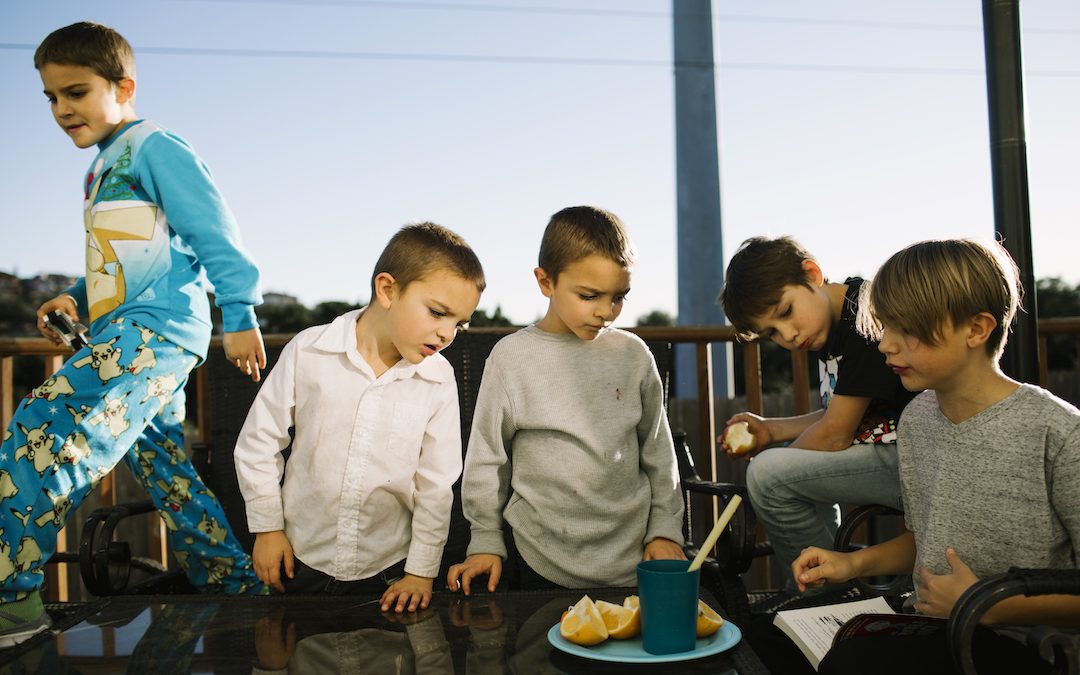
by Rachel Toalson | Poetry
i
Spindly legs running
brown eyes flashing in anger,
hope, love. He is Gift.
ii
Words, valor, life, they’re
his strong suit. He’s unafraid.
I call him Wonder.
iii
Daring, wild one
who risks at every turn, yet
won’t quit. He’s Courage.
iv
Attitude, he shows
it at every turn, strong-willed,
secure. He is Love.
v
Friends found in every
stranger, he shines his light of
words. He is Kindness.
vi
Open grin, wide eyes,
contagious laughter, smiles,
dancing. He is Joy.
This is an excerpt from Textbook of an Ordinary Life: poems. For more of Rachel’s poems, visit her Reader Library page, where you can get a few volumes for free.
(Photo by This is Now Photography)

by Rachel Toalson | Crash Test Parents
How about I let you in on a secret that will save you so much time: When we take on a tidying, throwing-out project, we cannot—I repeat, cannot—let our children know about it, or, worse, witness it.
You probably already know this, but in case you don’t, you’ve been warned.
The problem, you see, is that when kids notice you’re cleaning out a room, stacking up all those “beloved” stuffed animals they don’t use anymore or clearing out space in their closet for the next year’s clothes or setting all those toys they never play with anymore in the pile labeled “garage sale” (Wait. I don’t do that anymore. I get rid of it.) or throwing away the puzzles missing half their pieces that will, by all accurate estimations, never be found, they freak out. And I mean FREAK OUT.
But then, if you take heed of the danger that is letting kids know you’re on a tidying rampage and keep it a secret operation, the problem then becomes, how is this possible?
Kids are like ninjas, breaking into a locked and barricaded room to look through and dismantle a discard pile you don’t even remember leaving there. They sneak into your bedroom at night while you’re already sleeping, as if they can sense what’s in that trash bag stashed in your closet, and they’ll pull out all those books with missing pages and torn covers. They can slip into a room while you’re looking the other direction and undo your we’re-throwing-all-this-away work in 2.5 seconds, and the whole room will look like a crayon volcano exploded.
It’s impossible to keep kids from seeing and sensing. In fact, I’m convinced they have a sixth sense called “What my parents are throwing away today.”
They can sense when a parent gets a wild hair and convinces herself that she could probably organize this whole room in a morning, while they’re drawing happily at the table (never happens. It’s just wishful thinking.). Kids inherently know when something of theirs is being discussed, even if it’s silently in your own head. They will barge into a room that you were sure you locked behind you, at the least opportune moment, when you’re standing in the middle of the room with that “art piece” they did at the kitchen table without asking to use paper, and they will see the trash bag open and ready in front of your feet, and they will ask you, quite frankly, what you’re doing. And you will either have to lie, or you will have to tell them you’re keeping this forever and ever (and they will remember).
Kids will do everything they can to thwart your discarding efforts.
Even when you think you’ve got it figured out, they will beat you to the winner’s line (disheartening, yes. But at least you’re not the only parent to be beaten by your kids).
This one time we put all kinds of papers in a trash bag, and I cleared out all the old toothbrushes I caught one of the boys using to plunge a toilet with a present in it, and Husband took it directly out to the trash bin in front of the house, where it waited for the trash man to come by first thing in the morning, and when we woke up, those nasty toothbrushes magically reappeared in the cup designated to hold them, waiting for half-asleep children to paint their teeth with sewage.
Another night the 8-year-old was tasked with taking out the trash, and he found the little baby socks that are for a baby younger than three months (his youngest brother was five months old already). He pulled them out, of course, asking, “Why are these here? Why did you throw them away instead of donating them?” The answer is because I know what kind of socks they are. Crappy. They wouldn’t stay on our baby’s feet, and so I didn’t want to give them to any other parents who would feel just as frustrated as I do about socks that don’t work. Then he challenged me to think about how they could be reused. I taped them over his mouth. Perfect.
It doesn’t matter how many locks a door has on it. It doesn’t matter how dark it is inside a room. It doesn’t matter how immediate that trash pick-up is, kids will know.
Trust me. They know everything.
But here are some things you can do, if you can’t possibly keep your discarding project from your kids:
1. When one of your child’s friends comes over, send something you want to discard home with them. It’s like a hostess gift, but in reverse. “Please, take these old socks. You’ll probably throw them in your own trash, because they don’t work at all, but it’s the thought that counts, right?” Encourage your kids to give things away (just not to my kids). Then it’s someone else’s problem. And, bonus, it develops a giving heart in your kid, and gets them used to parting with things they love, like nasty toothbrushes that apparently still really mean a lot to them.
2. Wrap a grandparent’s gift with the art paper that only has one squiggly line on it. That way you can tell your kids you’re just using their works of art to bring joy to another person. You’re not throwing it away. Grandma is.
3. Tell them you will save those tennis shoes they wore in kindergarten with the soles flapping off for their firstborn son, and then, when they have their firstborn son and he asks where those old tennis shoes are (because he’ll remember), pretend there was a fire he never knew about.
4. Wrap a teacher gift with old worksheets. If your kids are anything like mine, they get offended when you try to recycle their school worksheets, even though every day they bring home fifty each (I have three in school. That’s one hundred fifty worksheets every single day). But if you reuse that worksheet to wrap a gift inside, it won’t look cheap. It will look artsy (just consult Pinterest if you don’t believe me). And then it will be on the teacher for throwing away their worksheet. (This isn’t foolproof, of course. If you have a persistently creative child like my 8-year-old, he will come back home with the worksheets, because he wants to “keep them for himself,” which means he wants me to keep them for him. I promise, baby, you’re not going to miss this Reading Comprehension sheet about green toads when you’re 18.)
5. Try to make an art piece out of all those scribble drawings, and massively fail. That’s okay. You can always give it away to a grandparent, who is probably responsible for giving them all those art supplies that are coming out your ears anyway. Pay them back the best way you know how: with paper.
6. Have a stuffed-animal-burying service. For the ones that are looking really bad and aren’t the least bit fixable, dig a hole in the backyard and put them in it (just don’t dig a deep hole, because of what comes later). Have a memorial service, where you talk about what the stuffed animal meant to you. When the kid is sleeping, dig the stuffed animal back up and immediately take it to your friend’s trash bin down the road. They’ll never think to look there (or so we like to tell ourselves). When they try to dig the stuffed animal back up because they “just want to check on him” let them. And then explain about dust to dust and ashes to ashes. It would make a great science lesson on decomposition.
If all else fails, just sell your house and tell your kids you promised the new owners all the toys would come with it. I know it’s not entirely true…or maybe it is. There’s a new revolutionary idea. You’re welcome.
This is an excerpt from The Life-Changing Madness of Tidying Up After Children, the second book in the Crash Test Parents series. To get access to some all-new, never-before-published humor essays in two hilarious Crash Test Parents guides, visit the Crash Test Parents Reader Library page.
(Photo by Ricardo Viana on Unsplash)
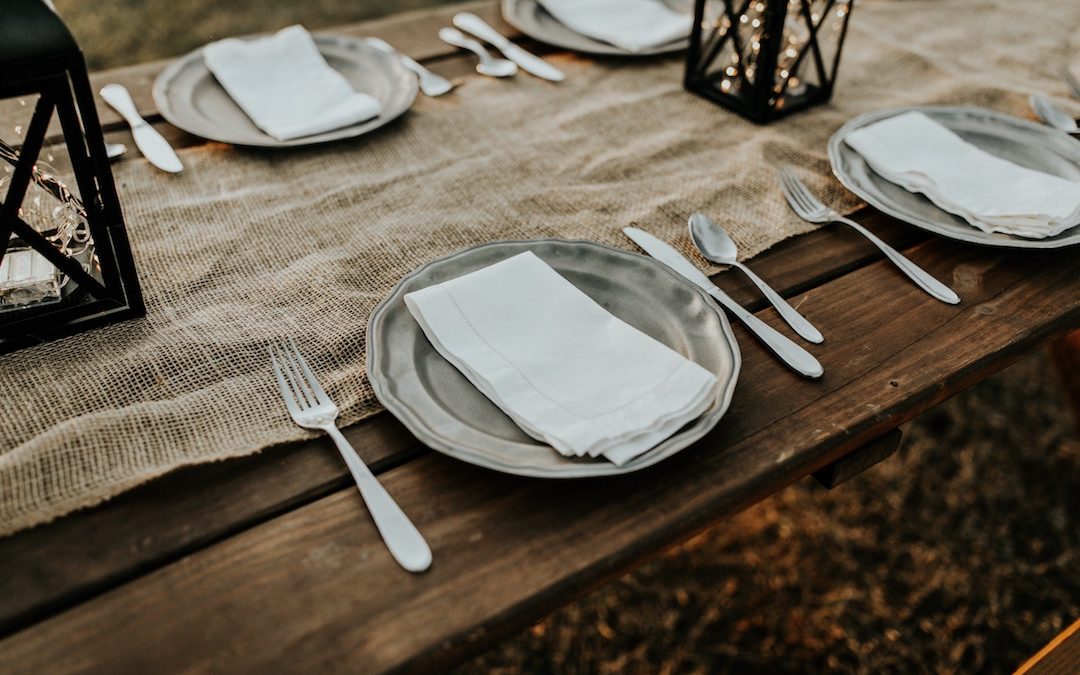
by Rachel Toalson | Wing Chair Musings
In a few days some of my favorite people will gather around my living room table, and we will talk over turkey and heap a plate with mashed potatoes and gravy and pretend we’re trying to decide between apple or chocolate pie when we know we’ve already planned to take a slice of both. Some of us will be missing this year because of in-law dinners and lives too many states away, but a small group will sit and celebrate the sacred family tradition that is Thanksgiving.
We will start that meal with a prayer, like we always do, and the four-year-old will grin into my face, because he’s so excited his Nonny and Poppy are here; and the five-year-old will try hard to close his eyes but won’t be able to help that roving gaze, because he’s always loved a food spread like this; and the eight-year-old will shift from foot to foot, because his daddy sometimes prays a little too long.
And we will give thanks in our hearts for all we have seen and done in the year stretching between this moment and the last time we all met around a table and a turkey and two pans of green bean casserole.
Love and hope and awe and wonder meet us here.
///
It’s hard to know when those first memories of Thanksgiving began. There are flashes of days down through the years, one at a great-uncle’s house with woods looming behind it and a long wooden swing hanging from the trees that shadowed his yard and pine needles thick like a spiky carpet on the ground.
There is a great-great grandmother’s house, all of us squeezed in the tiny square footage her husband built, where legend had it she slept with a gun under her pillow because she lived alone and the neighborhood had turned a little dangerous for an old woman and she wasn’t the least afraid to use it, and I remember the way the kids would sit out on her cement porch and swing or drop pieces of paper or leaves through the little mail slot so it would fall in the middle of her living room, reminding the adults we were still waiting on that food-call.
There is a great-grandmother’s house, after the great-great and the great-uncle were gone, and this gathering looked and felt smaller because so many of the older ones had died, and others had drifted away with the dying, and it was only a handful of kids who went out front to play kickball while the adults and my Nana watched a game on her living room television. All the kids missed the false teeth flying out when a referee made a bad call and Nana screeched at the screen, but we heard the laughter of all the adults who witnessed it.
These early memories are raucous and full of children running in and out of houses, trying not to stick fingers in the pies, and I can still smell that turkey and the fresh bread and those vegetables we didn’t even know the names of.
I couldn’t explain it then, not in words, but I could feel the thanks that burst from the first bite of food, all the way to the last bite of pie, when we all felt like we might pop and surely wouldn’t eat again after this.
There was something simple and special and sacred about those shared days. They courted joy.
///
Thanksgiving Day has lost some of its magic now.
Maybe it’s because a job demands work until the very day of thanks. Maybe it’s because kids go to school and homework still comes home and schedules still remain the same until Thursday rolls around. Maybe it’s because of all who are missing now.
When all those greats were alive we had so many families gathering around so many tables, and now, this year, we have two. There are no more greats around for the little children. Those children’s parents are the ones hosting dinners now. There aren’t even always aunts and uncles who join in the festivities anymore, because we all have our own lives and our own plans and our own families.
Gone are the days of great aunts and uncles all under the same roof for the same day breaking bread and eating their fill and trying not to notice how everyone looks older this year.
I feel a little sad about this. We used to pack a house on this traditional holiday, and now that holiday demands work and dangles big sales and asks families to cut short the one day a year when they might fall asleep on a couch after eating too much turkey and no one would mind their snoring.
I miss that magic.
///
There is a Thanksgiving that stands out as scary and new and somewhat disappointing. I was nine years old, and we had just moved to Ohio because it was the only way my mom thought we would ever be a family again, since my dad worked in Ohio and our home state of Texas was a long way off. She told us the news a month before summer ended and listened to us cry about leaving our friends, and then she packed us up and we moved into a two-story house in Mansfield, six or so rundown blocks from an elementary school.
We didn’t have the money that year to go back home (Texas would always be home) and spend the holiday with my mom’s family, who held all my memories of Thanksgiving to date. So we spent the day with my dad’s family instead.
My paternal grandmother was a saintly woman. It wasn’t her fault that she and my grandfather were the only two I really knew in that group of thirty or so. It wasn’t her fault that I had never felt more like an outsider than I did that year. That day.
Cousins who had grown up together, whose names we didn’t even know and I can’t recall today, played hide and seek in Grandma’s travel trailer, and my brother and sister and I stayed out under the trees, raking leaves, because we didn’t know them and they didn’t know us, and raking leaves at least gave us something to do. So we raked and waited for that screen door to open and let us know it was time to eat and we could finally blame our silence on food.
When they called, we all trampled inside a house that smelled like cabbage.
It was the first time I ever threw up after a Thanksgiving meal.
///
I wonder what my boys will remember of Thanksgiving, this holiday that is not so wild and noisy and crowded as it was in my girlhood because there is only them and a grandma and grandpa and, every other year, an aunt and uncle or two who bring a handful of cousins.
Will they remember these Thanksgiving days as thrilling, with a haze of laughter blurring them into gold? Will they remember adults playing board games and talking until the sun goes down and the whole sky turns dark? Will they remember how eagerly they waited to sit at the “adult” table, wondering every year if this one might be the year they move up past all the babies?
The spread at our Thanksgiving is nothing like it was for me as a kid, with rows and rows of homemade pies and sweet tea like syrup and a whole table full of steaming food in too-hot-to-touch bowls, but does it still look magical to my sons? Do they feel the people who are missing, all those family members who have come and long gone, or do they see a room-for-more house as full?
Do they notice the lost pieces like I do?
///
Then there was the first Thanksgiving without my maternal grandmother.
She had been there for all of the holidays I could remember but one, short and regal with black and white curls, always quiet in a corner chair so she could observe her family, because she was content simply to be in the same room with all of them.
She died in early February the year I only had one baby, and no one was thinking of Thanksgiving the day we gathered inside a church and mourned our great loss in gushing sobs until we had headaches and swollen eyes and a whole pile of crumpled tissues stuffed in the bottom of our purses.
No one thought of Thanksgiving when it came around, either. It came and went, without my aunts and uncles or any of the people left who might have carried on this sacred tradition of Thanksgiving Dinner. We didn’t carry on.
That year I hosted a small family gathering at my house, where my brother and sister and mom and stepdad and husband and only one baby boy sat down at a table set for six, with a highchair hanging on the end. It was the smallest family gathering we’d ever seen for Thanksgiving, because the one who held all the rest of us together was gone.
I didn’t know then that it would become the new standard for a family with a missing piece.
///
How much do we lose in this place of smaller family gatherings? I don’t really know.
As much as I grieve my family’s loss of larger gatherings, I cannot separate myself from something else I have learned in my adult years, something I never had to know as a child. In our world, there exist those with no family left and those who can’t physically travel to their family and those who have long been rejected by their family, and what about these on a day like this?
There are those who don’t eat half as well as we do on Thanksgiving, or any other day, and what about them? How do we even celebrate family around the abundant spread of a table when there are those who are lost and hungry and alone?
Maybe the answer to those spaces left in our home by the ones who are gone waits right outside our doors, at the house beside ours or the one behind the park or the street corner down the way, where the man selling newspapers works just another day of his life. Maybe we become family for those who have none.
My table will be full for Thanksgiving this year, but there is room still for more. I want to find them. I want to know them. I want to bring them home, into the fold of light and love and laughter like I have known.
It’s Thanksgiving, and we will eat and we will reminisce and we will give thanks for all we have and the people we love and the whole last year’s beauty. But that is not The End of Thanksgiving. Because true Thanksgiving becomes thanks-living, and thanks-living means thanks-giving to the world, to all those who need what we have, be it food or presence or simply an invitation.
So this Thanksgiving, I see the hollows and the spaces, and I thank God for them, because, even now, they are waiting to be filled.
Someone is waiting to be filled.
This is an excerpt from We Count it All Joy, a book of essays. For more of Rachel’s writings, visit her Reader Library page, where you can get a couple of books for free.
(Photo by Hannah Busing on Unsplash)

by Rachel Toalson | Poetry
We wander,
waiting, wondering, seeking,
gold glitters in the distance
and we take off running its way,
thinking we have found
the whole answer to life,
because it shines and
it sparkles and it will surely
lend its light over all
that comes next
And then we are there,
neck even, right in front of it,
and we see the blemishes,
the scratches, the chips
along the sides, and maybe
it wasn’t, in fact, the
whole answer to life, because
the whole answer to life
would be more beautiful,
less rusted,
flawless
So we wander,
waiting, wondering, seeking,
our feet grown more numb
in a frost that does not
reach roots, thank God,
because it’s cold and wet
and slimy between the toes
The sun scorches our cheeks,
drawing red like muted blood
in patches across our skin
and there is no relief to this
never-ending wasteland,
where we wander
The only hope
this horizon has
to offer is
an old rock
An old rock
where once had been
a golden masterpiece
Our future bundled up
in a shiny image
If only, if only, if only
We climb the rock
We stand
We look
And there before us is a
view of the land we have crossed
through days and weeks
and in and out of years
and how did we miss
how lovely light could be
when dressed in white
We did not see
But this old rock
This old rock
It is an ancient respite,
a resting place that
lays bare truth:
though we wandered,
we were not lost
This is an excerpt from Textbook of an Ordinary Life: poems. For more of Rachel’s poems, visit her Reader Library page, where you can get a few volumes for free.
(Photo by Liam Henry on Unsplash)
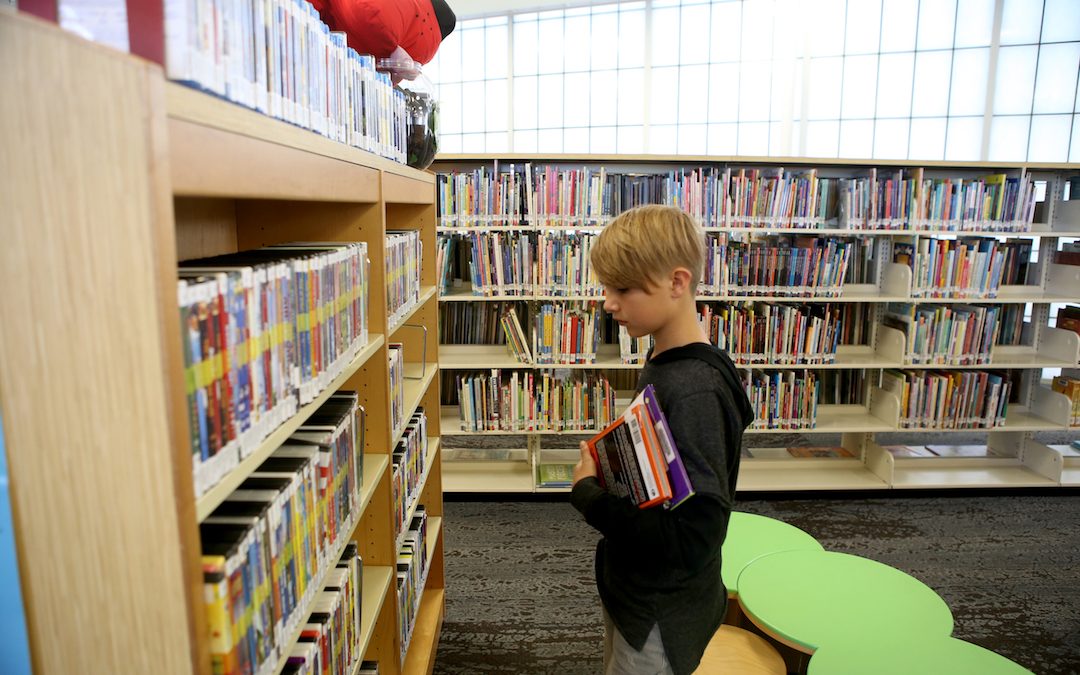
by Rachel Toalson | Wing Chair Musings
I watch my boy from where I sit, his back curved a bit while his head hangs over the Star Wars book he’s reading, and I marvel at how his brow is missing the soft spot between eye and forehead, how his face has thinned out of the baby cheeks and chin, how his mouth moves in silent speaking while he is so lost in the world of a book. My boy is no more a baby, but he will always be my baby.
In two days he will celebrate eight years since his birth day, that day when my body bore down and his body tore through, a day when boy became first son and girl-woman became Mama.
“I know how I was made, Mama,” he said last year on his day, when I set a birthday brownie-cupcake in front of him. “God took a piece of your heart and made me.”
He has a gift with words and truth and insight. He saw it exactly right. All my children are a piece of my heart walking and jumping and racing around outside my body, and it’s scary and risky and agonizing to let loose those heart strings so they can learn to walk on their own, but this is how we learn to really live.
The love between a mama and her boy is wide and deep and strong enough to knock us all flat.
What I have learned of love, what I have learned of grace and forgiveness and joy, what I have learned of life, I could not have foretold that chilly night in November, four days before Thanksgiving that year.
I have never been the same.
///
He slid into the world late, when the sky was pitch black, and it was a mostly perfect, by-the-books birth, with a perfect, rosy-cheeked baby and a perfect love all the way from the beginning. And then they released him to two young parents who didn’t know what to do with a seven-pound, fifteen-ounce baby except let him steal our hearts.
We laid him in a Peter Rabbit bassinet that first night, after reading him a bedtime story, and then his daddy and I found sleep to the sound of a new being breathing just beside our bed.
I woke before he did for that early, early morning feeding, and he was still sleeping soundly, but the darkness, all above his bassinet, was moving, swirling, like something lived in the dark, something sinister and sharp and full of a death that did not steal breath but something greater—life.
I picked up my baby boy and held him in my arms, and I prayed while he fed, and when he was done I held him and prayed some more, and when my arms got too tired to hold him anymore, I laid him in the bassinet, but I didn’t stop praying until the first shards of light reached right through my window, until that twirling dark lifted from the corners of the room, until the fingers that fought to reach an innocent baby’s form had completely disappeared.
It was my first all-night vigil for this boy whose name means Jehovah has heard.
It would not be my last.
///
Just a few weeks ago, I tossed and turned and prayed and listened and tried hard to find my way out of a confusion too dark to see through.
My boy had spent three days in school suspension for choosing to act outside of who he is, and I was sick to my stomach and sick at heart, trying desperately to crawl my way toward understanding. I tried to find the words that came so easily all those years ago, at my first all-night vigil, but the only words that would come sounded more like: Help. Please. Over and over and over again.
He is too big now to hold in my arms all night, but I held him in my heart.
It was all mere weeks after announcing we were expecting boy number six, when all those people filled a comment box with words: I guess you’re just really good at raising boys. But here was my firstborn, the boy who first stole my heart, proving them all wrong.
There was more he had to teach me here, this child who has always been strong-willed and incredibly creative and a wild hurricane of love.
Sometimes our parenting journey takes us right up against the places where it feels like we don’t know what we’re doing and it feels like we are not enough or we were never enough or we will never be enough and it feels like we are flailing in a midnight where all the stars have gone out. Sometimes we need to stall here and stay a while.
Our children will show us the way back out.
///
The day before Thanksgiving that birth year we raced him to a children’s ER, because he hadn’t produced a wet or dirty diaper in twelve hours. Your milk will come in, my mother had told me the day we brought him home and I could not even pump an ounce and could not say for sure that my baby was eating anything at all.
I sat in the emergency room, holding my four-day-old, watching the way he slept so peacefully even though my whole body shook with the knowing that he could have died from his dehydration.
They called us back and woke him with a needle, trying to find a tiny vein so they could hydrate him again. He cried and screamed and writhed on a table while they poked the bottom of his foot and then his arm and then another hand and then, after all the others slid out of their grasp, the largest vein in his forehead.
I watched my baby, hooked up to a hydration drip, and I noticed the way those glassy eyes stared at the nurse whose face hung over him, how he searched the room for his mama when he realized the face wasn’t the right one, and I cried and cried and could not stop crying. My body had failed him already, four days in. I had failed him already, four days in.
It would take all the days after for him to set me straight. I had not failed him, not really, because I was still his mama, and that was all he needed.
I loved him and he loved me and that was simple, but it was enough.
///
Love would always be enough.
Even on the days when strong will met frustration. Even on the days we yelled and said those words we didn’t mean. Even on the days we walked bruised and bloodied and broken for all the mistakes we made. Every mistake, every failure, every less-than-ideal moment was remaking me.
It was not just this boy who slid from a womb eight years ago. It was me, too.
A child, this child, and all his little brothers living inside my home, have led me deeper into the way. They have drawn me closer to the Way. So it is not just his birthday we will celebrate in two days. It is my birth-anew day, too.
As hard as this journey has been, the ways he has taken apart all our parenting philosophies and rearranged them completely, the times we have walked, shaking, off the ledge into a boy-world—I would not trade it for all the easy and predictable certainty in the world.
Sure, there have been days when he has raged and I have thrown my rage to meet his and we both bled through tears and words and wonderings, but I would not give away those days, those opportunities he has given me to practice asking forgiveness and limp toward a better vision for parenting, because they have taught me about humility and grace and freedom. Sure, I used to watch the two-year-old nursery where all those kids sat on their designated seats while my boy climbed onto the one he’d already chosen before the teachers pointed out a different one, and I would wonder how the other kids could be so obedient and well-behaved and calm, but I would not wish a perfectly obedient, minds-all-the-time child in his place, because he has taught me acceptance and joy and what it’s like to surrender to earth-shaking belly laughter. Sure, there would be days when he walked out the door and threw back those words, I’m going to run away, and I wanted to let him, but the truth is I would chase him down to the ends of the earth, because he has taught me how to love in all the hardest places, and I don’t want to stop learning. Ever.
The only time I ever considered my boy easy was when he was a baby, but I’m glad. What he has taught me in his challenge whispers truth about a mama’s strength, so much greater than she knows, and a mama’s hope, so much wider than she can see, and a mama’s great love, so much deeper than she could ever understand.
Thank God he is alive. Thank God he is mine.
This is an excerpt from We Count it All Joy, a book of essays. For more of Rachel’s writings, visit her Reader Library page, where you can get a couple of books for free.
(Photo by Helen Montoya Henrichs.)

by Rachel Toalson | My Books
I love everything about Textbook of an Ordinary Life. I love the cover (I really love the cover), I love the depths and heights that the poems examine, I love the structure, I love the way it all reminds me that an ordinary life is something really extraordinary. You’ll hear this over and over in my poetry collections—the celebrations of life and love, the sacred space of a moment, the ridiculous privilege of being alive.
As always, I hope that readers will see in my poetry a small piece of themselves and their own experience. I hope they will examine and embrace the heights and depths of love and life—so that joy and excitement and fulfillment can surge into their hearts with a permanent, life-changing intensity.
I hope they will read and reread and reread again the poems that show them life in the darkest places, speak hope to despair, and challenge them to live their ordinary life to its absolute fullest.
(Photo by Alexa Mazzarello on Unsplash)
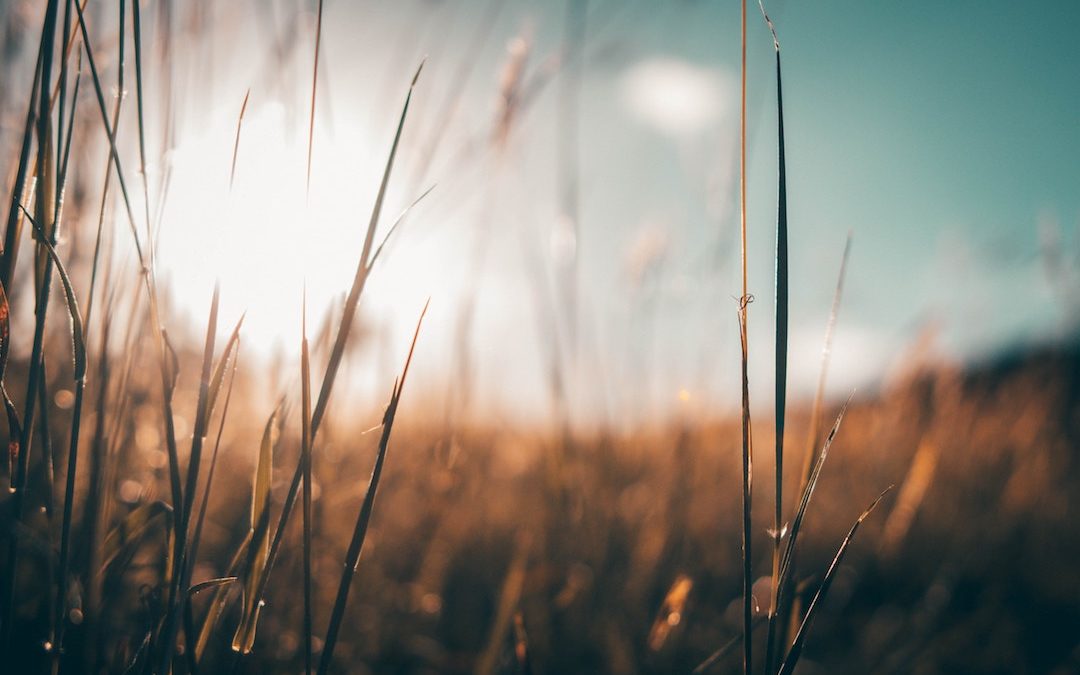
by Rachel Toalson | Poetry
The air is wet and heavy, as if rain might hide in the looming clouds that blot out the sun, but
YOU CAN NEVER KNOW
How they play in spite of what may or may not be coming, as if they have not a care in the world, and how I wish I could be like them, oblivious to
WHAT MAY BE COMING—
What might be asked of me. I had a dream last night, and it was a good one, but the good dreams never become what is
A LIFE OF GOOD AND PLENTY
Only the bad dreams seem like believable realities, because they are more deserved, perhaps. A black eye here, a deep wound back there, a damaged mind all around, they point to a shattered constitution.
OR A LIFE OF ANXIOUS WONDER AND EXTRAORDINARY TRANSFORMATION
And on any given day I don’t know which is better—the poetry of a disjointed life or the straight and narrow line that fragments in its own way, but on a good day, a more contemplative day,
I KNOW WHICH I’D CHOOSE
This is an excerpt from Textbook of an Ordinary Life: poems. For more of Rachel’s poems, visit her Reader Library page, where you can get a few volumes for free.
(Photo by @gebhartyler on Unsplash)
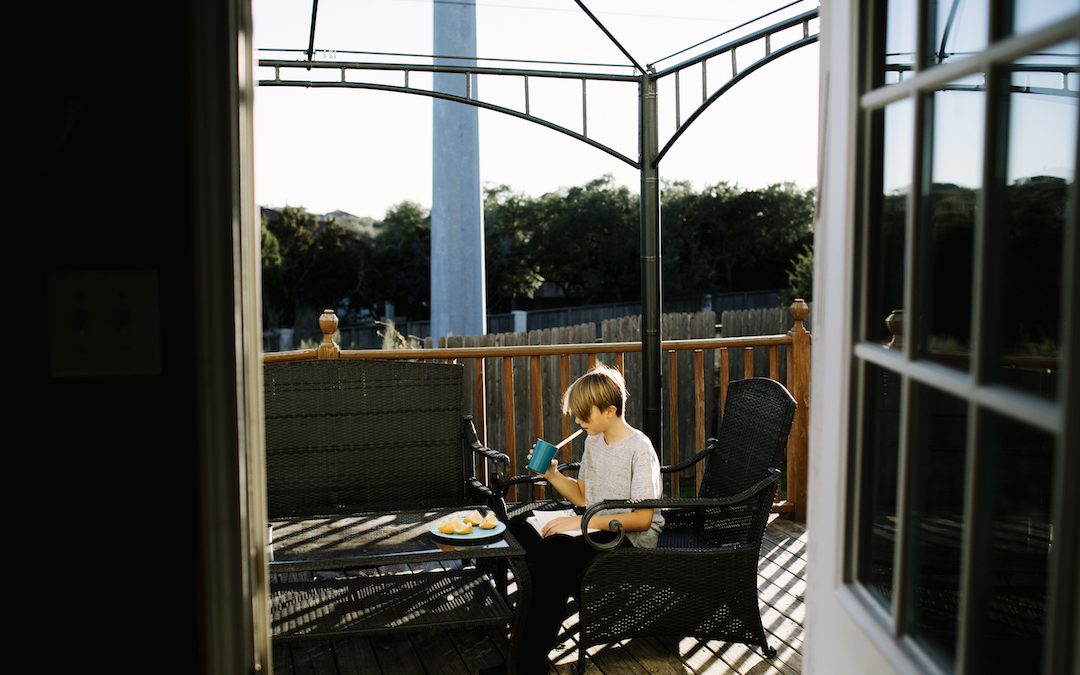
by Rachel Toalson | Crash Test Parents
If a kid wants to do a time capsule he’ll bury in your backyard, first he’ll ask for a box.
When you give him a box, he’ll ask for a few “simple” craft supplies so he can have something to fill it. He’ll ask for some markers so he can color a bookmark “to remember how he used to get all outside the lines when he was a little boy.” When he’s finished coloring the bookmark, he’ll ask for some memorabilia. Which means he’ll need access to your stack of old “treasure” papers so he can find something interesting that will remind him of his third grade year.
When you’ve told him, no, we’re not getting a stack of papers out, he’ll ask if he can stick his brother in the time capsule instead, and you’ll probably think he’s joking, but then you’ll notice the look he’s giving his brother, sizing him up as though to see whether he’ll actually fit in the box. And you’ll hesitate, because his brother, right now, is running off with the scissors he knows he’s not supposed to touch, with some loose strands of hair in his fist. But then, of course, you’ll say no. Of course you will.
You will.
He’ll then ask for a pen to write his future self a note and sign his name in the cursive he taught himself this summer. He’ll take so long writing the note you’ll ask him why he’s writing an entire book that he’ll have to sit down and read in five years, after he digs it all back up (if he remembers where he buried it, that is), and your asking him why he’s writing a book will remind him that he wants to put an actual already-written book from your bookshelves into his time capsule, because of course he’ll want to read a Pokémon graphic novel when he’s fourteen. When you say, no, he can’t put that book inside his time capsule, he’ll huff a little and ask you which book he can put inside the time capsule, and when you tell him that he can’t put any book in it because a book buried under the ground will likely begin to decompose, he’ll ask you if you think food would start to decompose, because even though he’s practically a genius in science, apparently he hasn’t learned or read about this part of the scientific process.
When you say yes, food will decompose, he’ll say, that’s okay, he thinks he’ll go ahead and put this whole bunch of grapes in it, and you’ll explain that not only is there no point to putting a whole bunch of grapes in a time capsule, because they’ll be gone in another month, but we also don’t waste food around the house, and he’ll have to come up with something else to put in the box. So he’ll realize, now, that the cardboard box will probably actually decompose during the time he plans to keep it underground, so he’ll ask for something more permanent—like a plastic container you’re not using. Before you’ve even answered, he’ll open up the cabinet where you keep all your containers, and he’ll rummage through the perfectly organized stacks until he finds a small glass one and holds it up so high that if he were to drop it, glass would shatter instantaneously.
Once all that’s sorted out and he’s taped up his box and is ready to go, he’ll ask for a shovel. You’ll tell him that you saw the shovel out in the front yard, and he’ll say, oh, yeah, his brother brought it out there because they were playing a sword fighting game and whoever got hit in the face and was still standing at the end of it was the king of the mountain, and you’ll look at him, slack-jawed, and he’ll take advantage of that moment to go out front and retrieve the shovel.
Then he’ll ask you where you’d like him to dig the hole.
Naturally, you’ll look around the backyard, which is already pretty much destroyed, and you’ll say nowhere, because there are enough holes already, can’t he just use one of the pre-dug ones? But he won’t let it rest, so you’ll point vaguely in a direction, knowing that it won’t really make much difference anyway, but you’ll add that he’s going to do the digging himself. He’ll look at the ground and stick the shovel in, and you’ll hear a jarring clang, because the soil is mostly rock. He’ll try again—and one more time—before he’ll ask you to help. You’ll politely decline, saying you need to get back inside to make sure his brother isn’t smashing flower pots for fun like you caught him doing the other day, and he’ll probably say something along the lines of no one loves him because no one will help him dig, and you’ll say something like he just wants to make someone else do the heavy lifting for him, and he’ll say something like you’re the meanest person in the whole world, but then he’ll ask you if you might actually give him a hand, please, because the ground is full of rocks, and he can’t do it. And you’ll feel a little sorry of him, so you’ll dig a little, too, even though all you have is a hand shovel, since he’s using the large one, swinging it so close to your head you hold up your hands and tell him you don’t want to be king of the mountain, please put it down.
Then he’ll ask how far he has to dig.
You’ll tell him that he’ll have to dig as far down as he needs to for the box to be buried, because you certainly don’t want a cardboard box with Amazon’s logo on it sticking out from the earth, and then he’ll tell you that he no longer wants to do a time capsule anymore, because he wants the Pokémon card he put in it. And he also wants to start a “Minecraft ideas” business in the front yard.
So you’ll both go back inside, where his brothers have taken out every card game you have in your house and spread them all over the floor to “be a new carpet because ours is really dirty and gross,” and the cardboard box will wait for another day, when your kid will look at it, recognize its potential, and remember that day he wanted to do a time capsule. And chances are, if he remembers he wants to do a time capsule, he’s going to want something to put in it.
This is an excerpt from Hills I’ll Probably Lie Down On, the fourth book in the Crash Test Parents series. To get access to some all-new, never-before-published humor essays in two hilarious Crash Test Parents guides, visit the Crash Test Parents Reader Library page.
(Photo by This is Now Photography.)
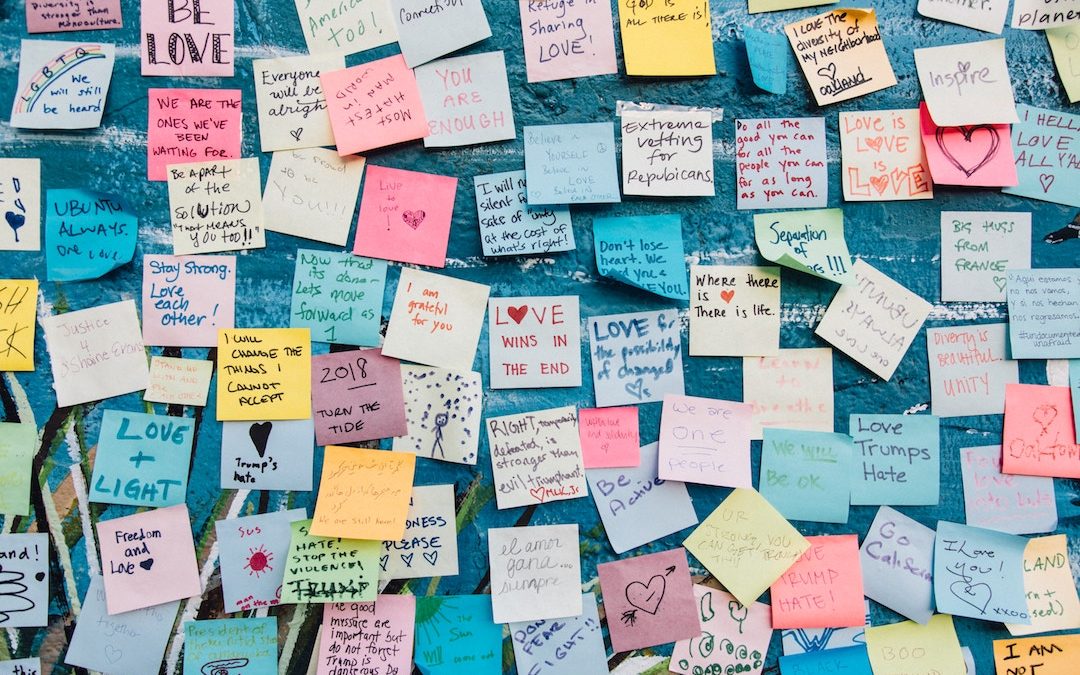
by Rachel Toalson | My Books
During the revising of the poems within this book, one of my favorite picture book authors, Amy Krouse Rosenthal, died. For some reason, I had no idea that she had written a couple of adult books. Her most recent book was a collection long and short essays that were laid out like a textbook. I read another book of hers that was laid out like an encyclopedia. I thought, I love these forms! And I could see something similar working for the poems I’d written that year.
Inspiration comes from everywhere.
So I began laying out the poems I’d chosen for this book by subject. It began to resemble a comprehensive textbook—the book of life. I grouped poems into divisions like Math and Science and English and History and Philosophy. The shape of Textbook of an Ordinary Life was born.
During the year I challenged myself to daily poetry, I experienced what most people experience in the course of a year: disappointments, joys, revelations, setbacks, hope. I brooded on my past, examined my present, and thought about my future. I grew.
I was inspired by what I read, by the time I spent with my family, by interactions with strangers, by walks in nature, by my daily lived experience.
This book really spans the universal experience of a life.
(Photo by Kyle Glenn on Unsplash)











